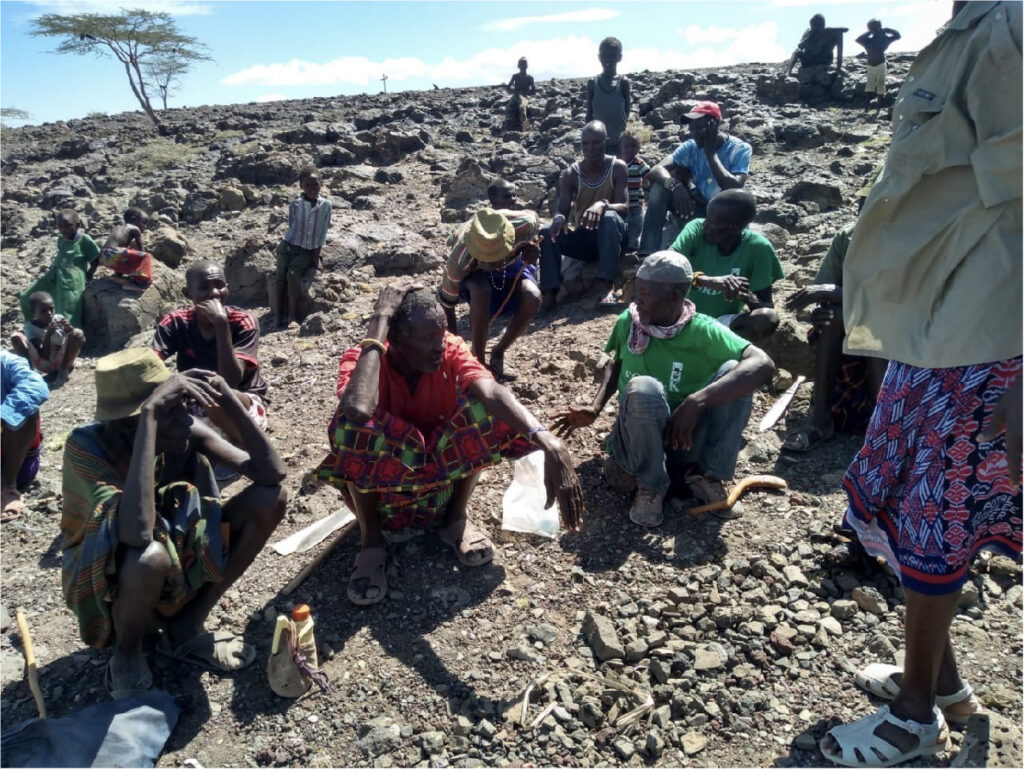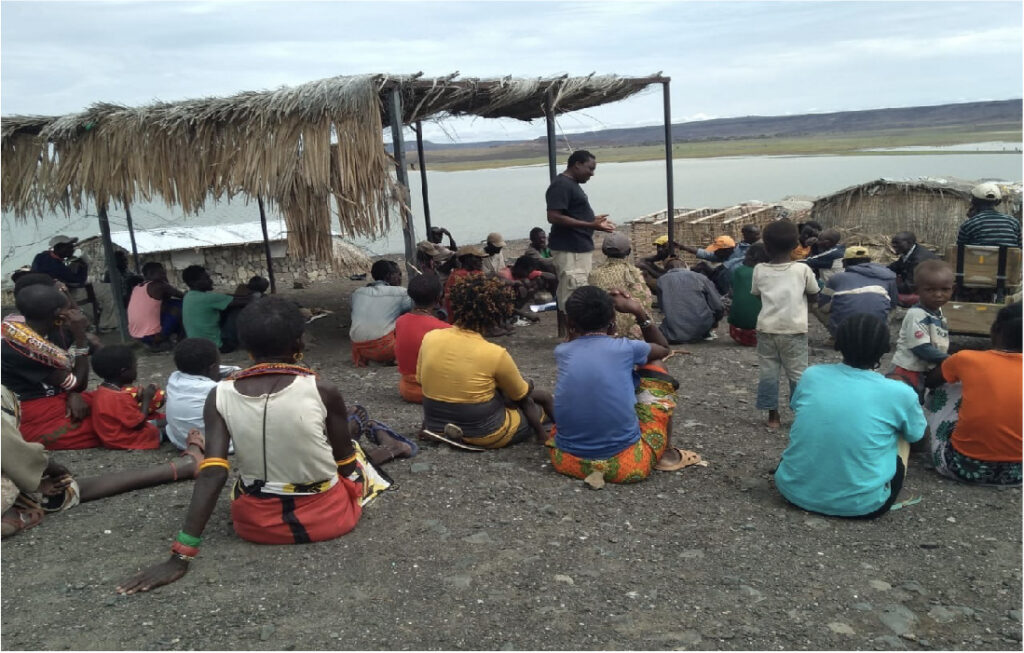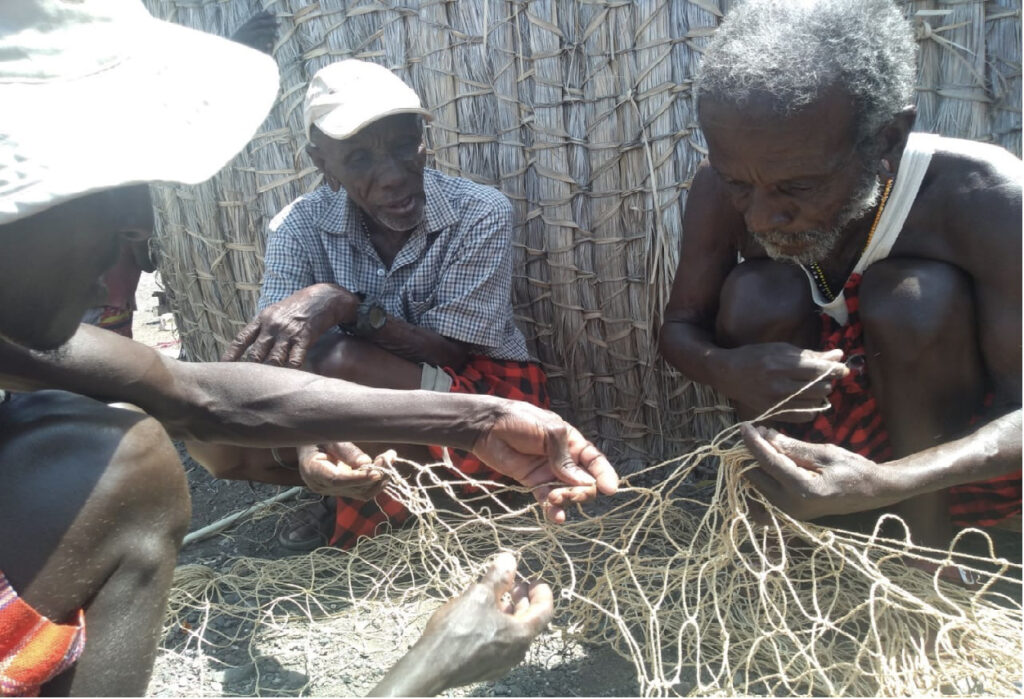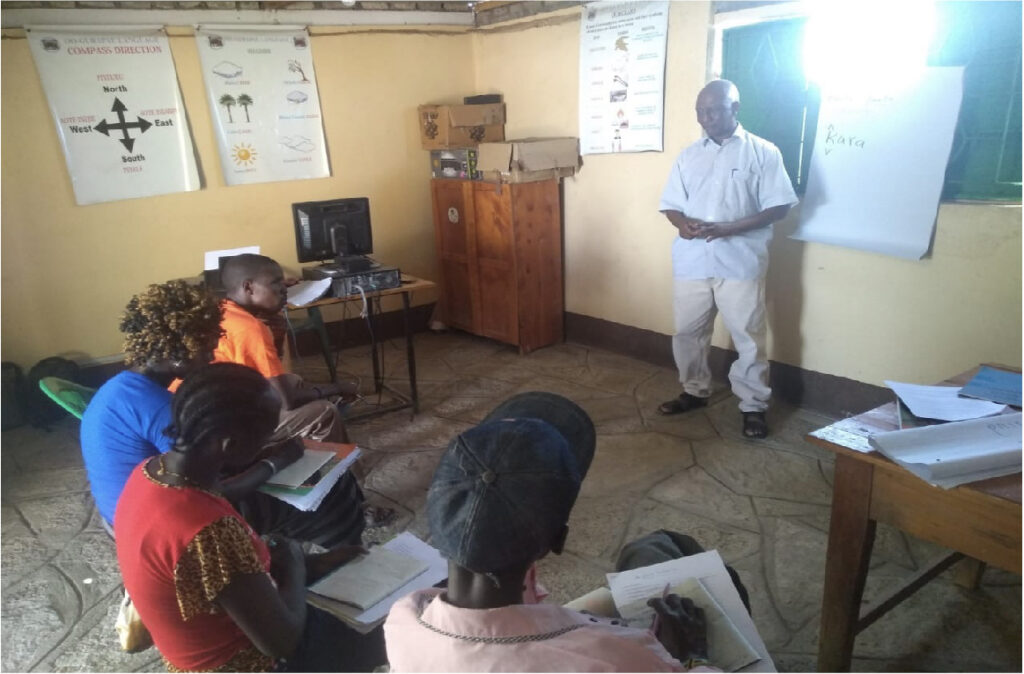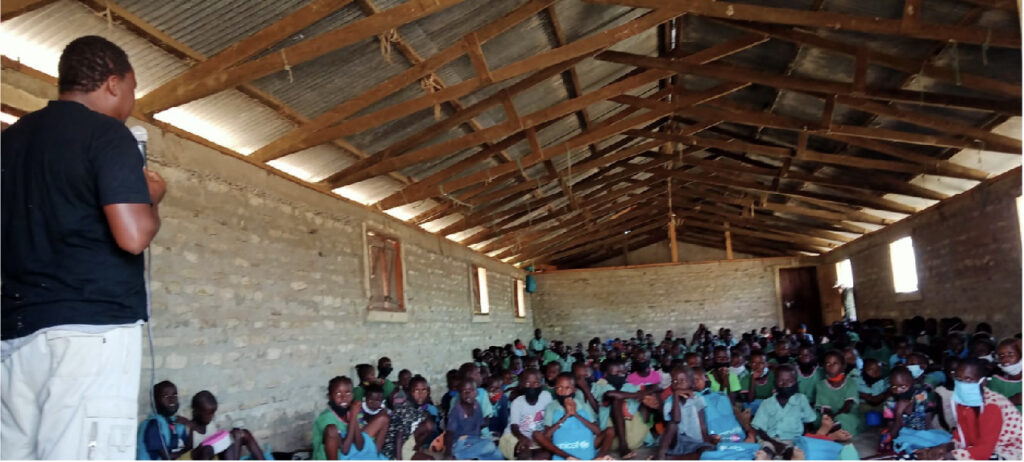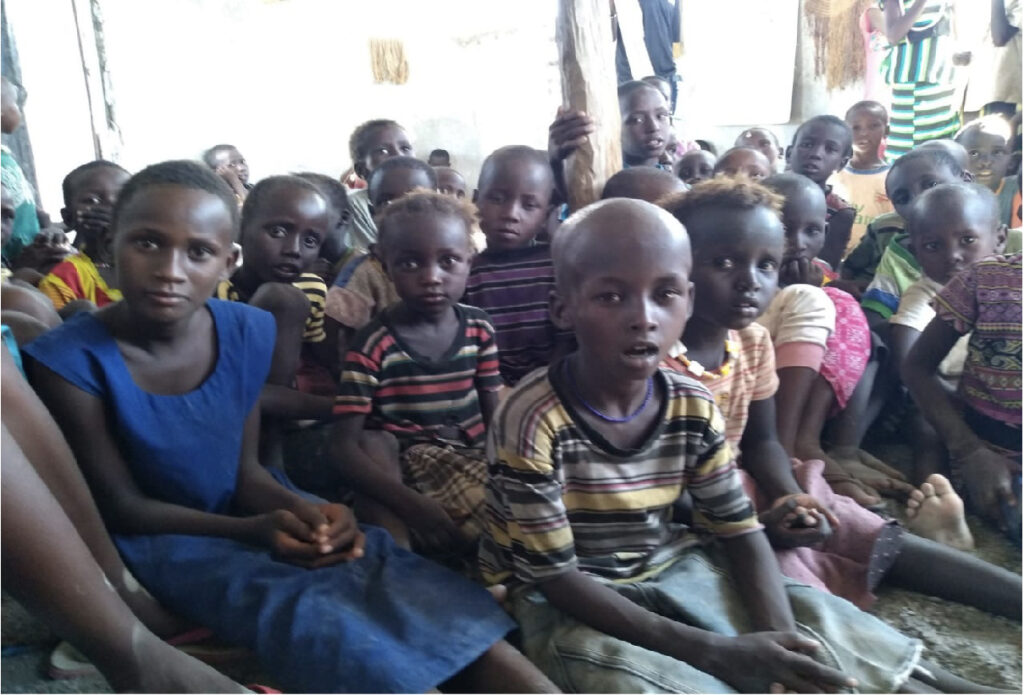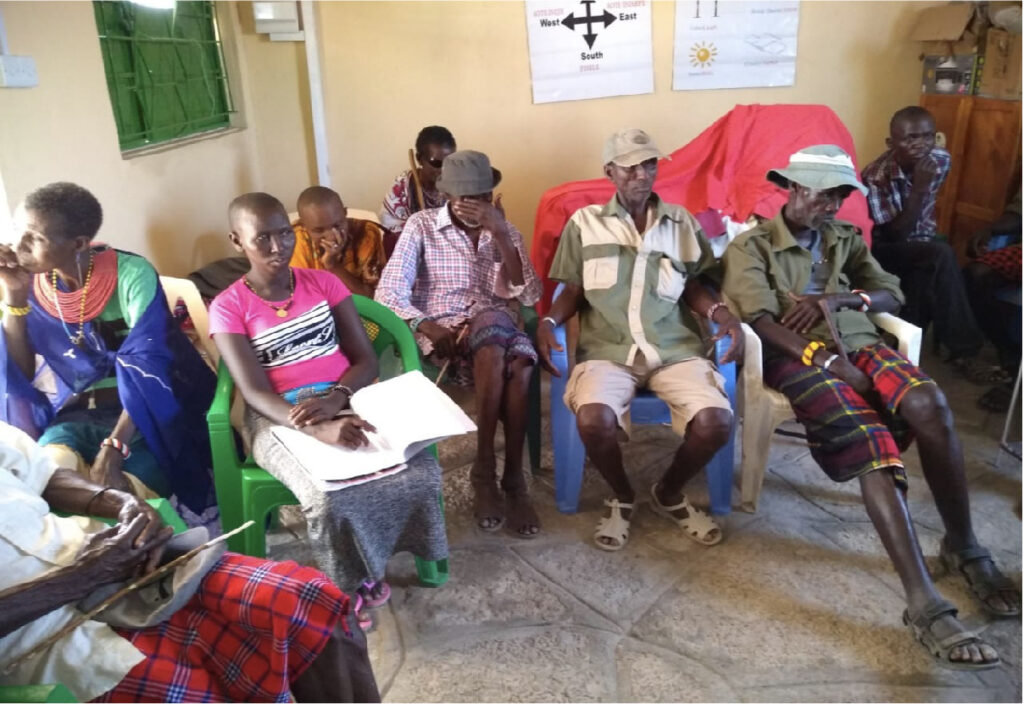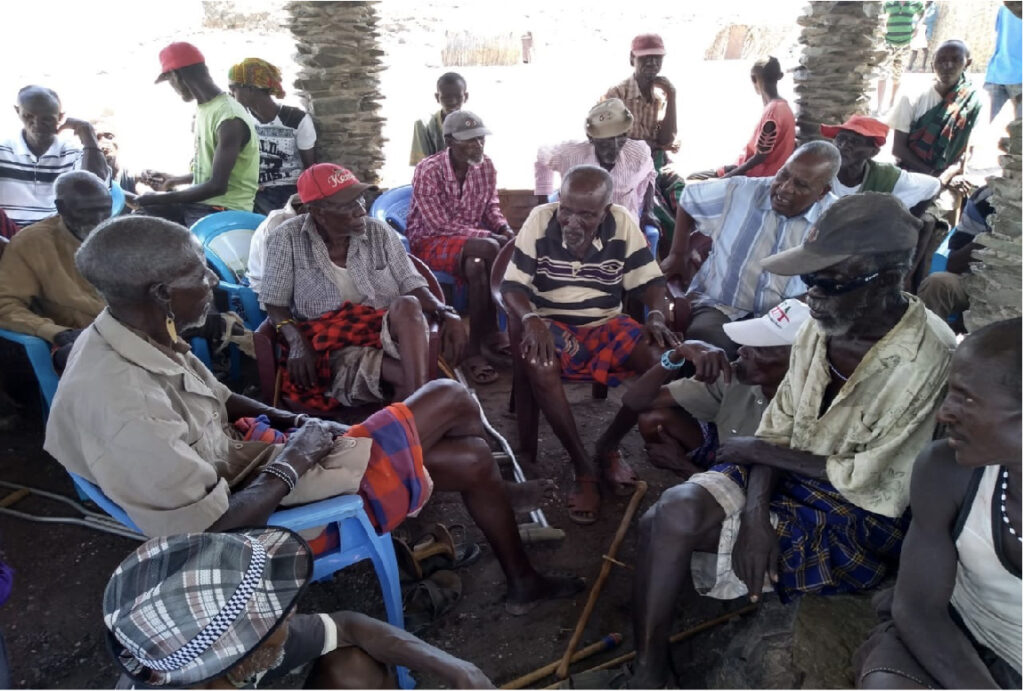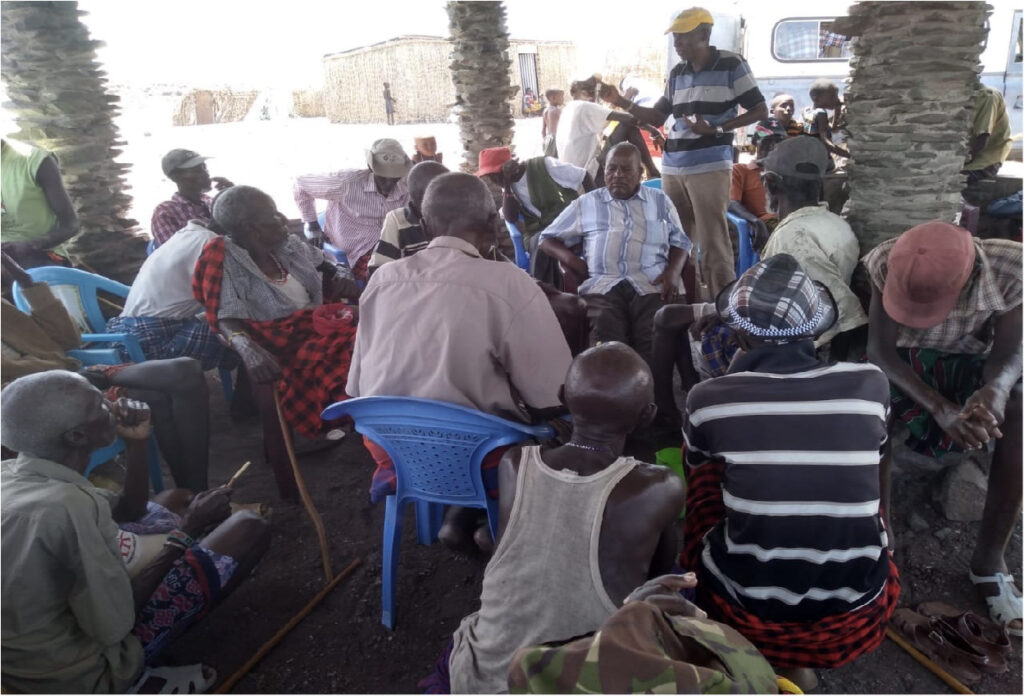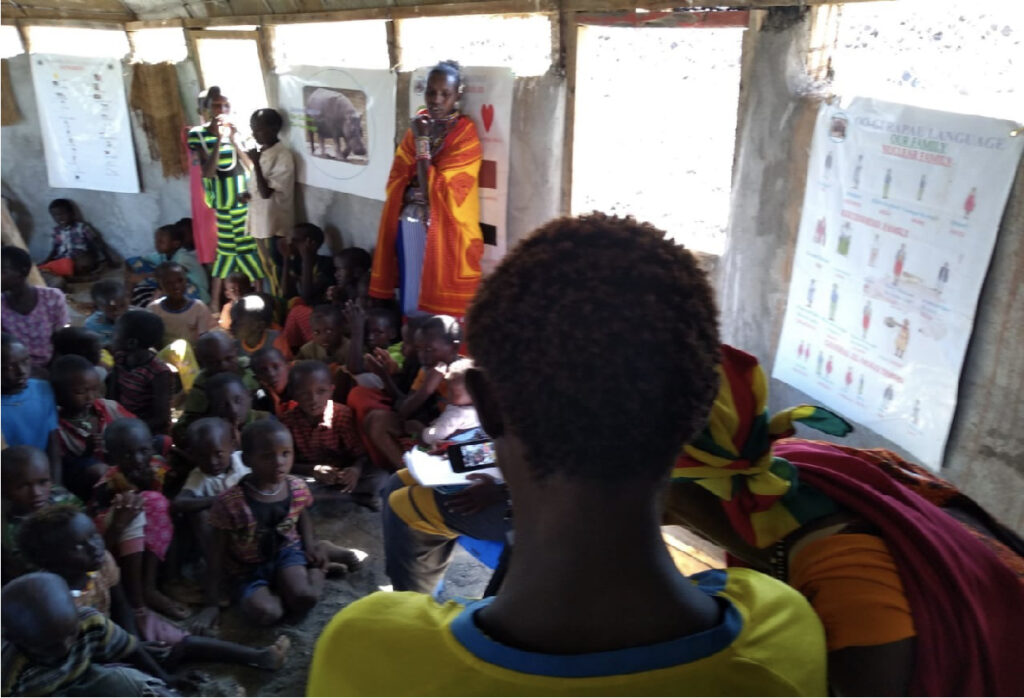KENYA
What would a community do if it one day realized that their language might vanish forever and with it the memory and history of their tribe?
This was the challenge that the Gurapau Group in Marsabit County, Kenya, took on in order to keep their language, El-molo, from fading into oblivion. The group commenced with community meetings in El-molo Bay and Arbore land to introduce the project’s goal of reviving their language.
Whom could they consult and interview who had familiarity and knowledge of the language to be passed on? Thus were men and women elders in El-molo villages who still had the grasp of their language identified. Knowledge and skills-sharing and transmission began between the elders and teachers through focused group discussions. El-molo language adept Elder Lentoo Losigakwe said, “I understand the language as taught by my mother, and I’ll undertake to teach our people what I know.”
A competition was held at the village level to choose competent male and female individuals dedicated to teach the language. Among them, two were hired as language teachers. Next, a language expert was hired to gather more information and collect data from fluent elders and other community members with the basic knowledge of El-molo vocabulary and syntax needed to improve the dictionary. The same linguist trained the teachers on curriculum development, teaching aids, and guide book design. These learning tools and the dictionary were all printed and distributed.
Lomalumalu Lekapana, one of the trained teachers, expressed her enthusiasm. “It is my first time being involved in such a project. I am very excited about the revival of my language and as a teacher I’ll offer my services to ensure that our children learn and speak our language.”
The El-molo language project used community meetings to raise awareness of the need to revive their language. Both young and old El-molo community members expressed great interest and openness to learning, and they understood that these efforts were geared towards this goal. They realized and were inspired by the great expertise among their elders who were fully supportive of the project. Community members reciprocated the elders’ efforts with their preparedness to learn the language. In addition, they worked on improving classroom facilities, specifically constructing a language classroom to provide a teaching and learning environment to El-molo children. Village children must learn, use and practice El-molu in order to perpetuate the language’s use. For this reason, language class enrollment was opened to all ages, including pre-school children and the larger community.
The initiative undertook research and interaction with the Arbore community to enhance the revival of El-molo language. A liaison team of eight individuals from Gurapau and Hor Malbasa Association from Arbore was formed for the purposes of information sharing and visits by El-molo representatives to Arbore land. The team, which included a linguist, visited the Arbore community to trace the vanishing El-molo language and they identified pronounced language and cultural similarities and historical ties. They also discovered a language pattern and structure previously unknown to El-molo community speakers, and they regarded this as an important aspect for future interactions, information sharing, and dissemination of research findings.
El-molo Elder Lempirias Lekulo made a fitting statement of commitment, “This project is a wakeup call to us as a community to discover our self-identity. Let us be proud of our language and strive to learn, both young and old. I will volunteer to teach the young generation a hippo song.” They had indeed rediscovered themselves.
Until today, the community has strengthened the teaching of El Molo. They hired a linguist to document the language and have developed teaching materials. In addition, they teach songs in the language and dances for the children to strengthen their language and cultural identity. They have also hired 4 language teachers to teach the children and youth.
We do not have an identity as a community without a language. I thank Pawanka for supporting our quest for our language revival. As an elderly woman with little knowledge of our language, I will make sure I contribute positively towards continuous reconstruction of our language even witho ut the support of donors. Nturukwa, an elderly woman 65 years of age.
(The project “On the Trails of Vanishing El-molo Language” was implemented by the Gurapau Group in 2018 and 2020 in Marsabit County, Kenya with the support of PAWANKA Fund.)
